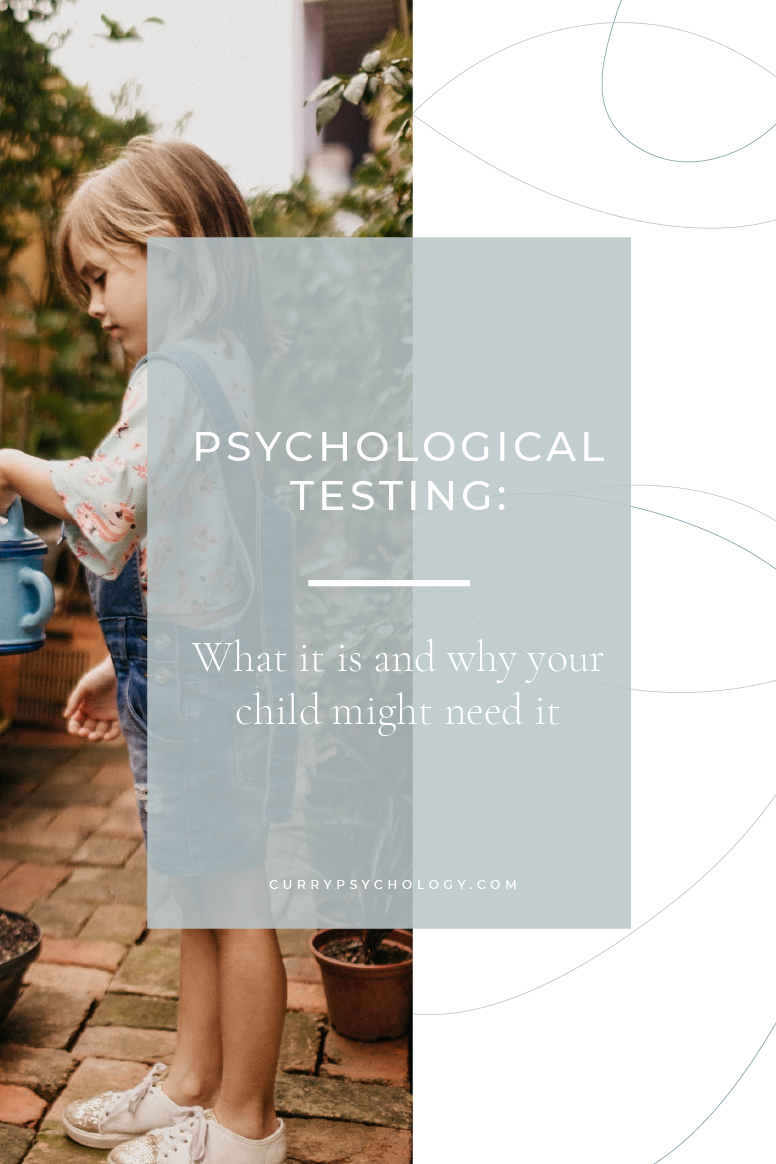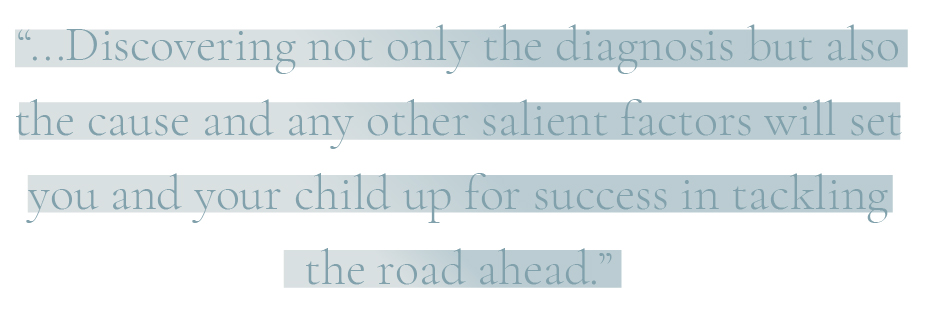October 29, 2019
Psychological Testing in Children
Psychological Testing:
What it Is and Why Your Child Needs It

Parents often ask me about the difference between formal Children’s Psychological Testing (also known as Psychological Assessment and Evaluation) completed by a psychologist versus the types of diagnostic exams completed by a pediatrician, occupational therapist, or psychiatrist. The answer is that Psychological Testing goes much deeper than a simple diagnosis, with all manner of attendant benefits. (See our article, To Test or Not to Test)
First, it is important to know that Children’s Psychological Testing refers to not one test, but a whole constellation of objective tests and techniques that only psychologists are trained to administer. These tests measure in the hundreds, and allow psychologists to measure a child’s emotional, behavioral, developmental, intellectual, neuro-cognitive, and/or academic functioning, as well as reveal the underlying causes of the child’s issue. In choosing from this diagnostic arsenal, a psychologist compiles what is known as a “test battery,” or a group of different tests to administer, which choice is based on the specific concerns about that particular child. When combined, the tests provide a comprehensive explanation of the underlying issue. Significantly, the test results are highly reliable, and are based on statistical and normative data. By contrast, the diagnostic evaluation conducted by a pediatrician, occupational therapist, or psychiatrist is typically based on subjective observation and questioning. Clinical judgment in the absence of objective data has been shown to be highly prone to error, and while the pediatrician may administer a physical exam, medical procedures cannot identify a psychological or developmental disorder.
Another important distinction is that Children’s Psychological Testing is especially effective in ruling out all the conditions that do not apply, allowing the psychologist to hone in on what is actually going on with the child. For example, if a parent observes problems with their child’s behavior, emotions, and academics, Psychological Testing can help a psychologist rule out attention deficit disorder and various learning disorders, identifying, instead, an auditory processing disorder (and associated frustration) as the cause of the child’s issues. It is difficult for any other type of provider to make such a complex determination. Thus, you might say that Psychological Testing affords more accuracy and precision in zeroing in on a diagnosis, whereas a pediatrician or psychiatrist will have fewer tools at her disposal.
Parents also wonder about the practical aspects of Psychological Testing. Here, the procedure is lengthy but simple. Your child will be given a series of age-specific standardized tests such as questionnaires, ranking lists, surveys, checklists, and even verbal questions. The test will likely span several days and, although the sessions may be lengthy, there will be breaks. A follow-up interview with parent and child, both together and separately, completes the process, after which your treatment professional will make recommendations and even referrals, as necessary.
The bottom line is that when your child is dealing with psychological and behavioral issues, it is best to take a comprehensive, expert approach. Discovering not only the diagnosis but also the cause and any other salient factors will set you and your child up for success in tackling the road ahead. Finally, be sure to choose a psychologist with whom both you and your child enjoy a positive rapport. Your comfort is pivotal to the process and will make the diagnostic and treatment experience that much more positive.







